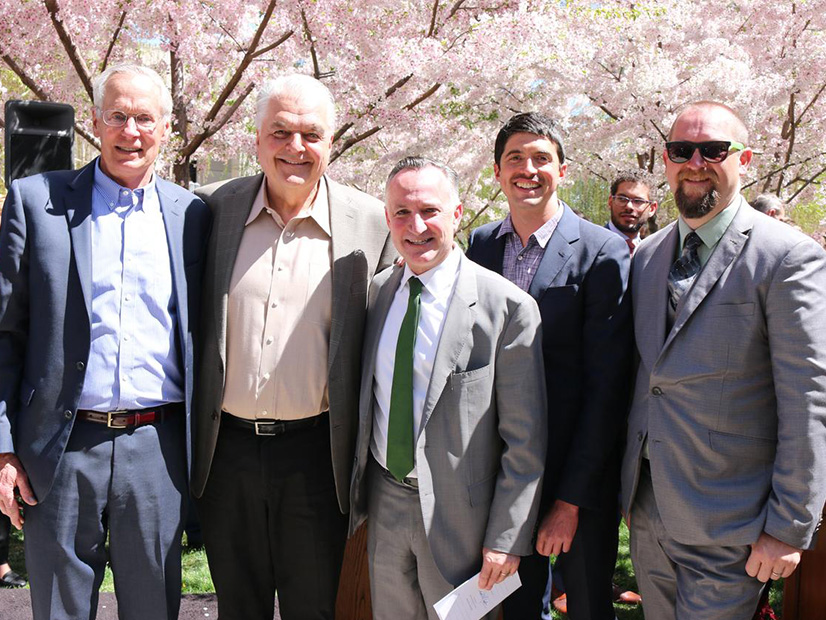Nevada Sen. Chris Brooks on Thursday introduced a wide-ranging energy bill that would expand transmission and boost the availability of electric vehicle charging across the state.
Senate Bill 448, which has six primary sponsors including Brooks (D), was referred to the Senate Committee on Growth and Infrastructure.
Brooks discussed the bill Thursday during an energy roundtable hosted by Gov. Steve Sisolak.
Brooks said the bill would lay the groundwork so that the state could create or enter a regional electricity market by 2030.
“This bill would create a framework by which we could then develop transmission lines across the state of Nevada and be able to access wind in Wyoming, solar in the Southwest, hydro in the Northwest, and provide power to our neighbors in Southern California and Central California,” Brooks said.
The text of the bill had not been filed on Thursday. But according to a written overview of the bill from Brooks’ office, SB448 would require Nevada’s electric utility, NV Energy, to file by Sept. 1 a transmission infrastructure plan that would include high-voltage transmission lines and associated facilities that could be in operation by the end of 2028.
The transmission plan would be designed to meet goals — including expanded transmission access to renewable energy zones — and provide support for development of regional transmission interconnections needed for Nevada’s full participation in a future competitive regional wholesale electricity market.
The bill would also create a Regional Transmission Coordination Task Force to advise the governor and the legislature on actions needed to join or form an RTO.
In terms of EV charging infrastructure, the bill would provide for an initial investment by NV Energy of $100 million from 2022 to 2024 for a variety of EV charging programs.
The bill would also align the utility planning process with the state’s decarbonization goals.
Nevada’s 120-day legislative session runs through May 31. The deadline to introduce bills has passed, but deadlines were waived for Brooks’ bill. (See Nev. Land-use, EE, Tx Buildout Bills Head for Home Stretch.)
Environmental groups weighed in on the bill on Thursday.
“This bill provides opportunities for Nevadans to plug clean vehicles into clean electricity,” Max Baumhefner, senior attorney with the Natural Resources Defense Council, said in a news release.
Cameron Dyer, staff attorney with Western Resource Advocates in Nevada, said the bill “would create much needed provisions for utility planning, transportation infrastructure investment, and transmission expansion that can support future regionalization to facilitate the use of clean energy and help Nevada reach its targets for reducing the carbon pollution that causes climate change.”
The bill has also picked up support from leaders of various International Brotherhood of Electrical Workers locals, who pointed to the “widespread harm” that the COVID-19 pandemic has caused their members over the past year.
“As this dark cloud begins to lift, it is critical that Nevada move to incentivize and approve infrastructure projects like electric vehicle charging infrastructure build outs that will put our members back to work and infuse the economy with hundreds of millions of dollars-worth of investment and economic activity while simultaneously helping the state meet its renewable energy and carbon reduction goals,” the IBEW leaders said in a statement.





